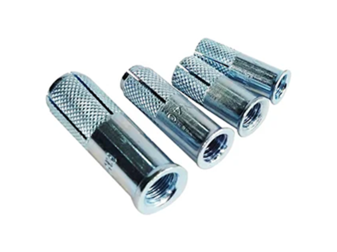Dec . 01, 2024 03:55 Back to list
Exploring Different Types of Bolt Metals and Their Applications
Understanding Bolt Metal Types A Comprehensive Guide
When it comes to securing structural components in construction, manufacturing, and various mechanical applications, bolts play an essential role. However, the efficiency and longevity of a bolt heavily depend on its material composition. Different metal types offer unique properties that cater to specific demands. This article explores the various bolt metal types, their characteristics, and their appropriate applications.
1. Carbon Steel Bolts
Carbon steel bolting is one of the most prevalent options due to its affordability and strength. Carbon steel contains a mix of iron and carbon, resulting in a sturdy material capable of withstanding significant stresses. These bolts are commonly used in general construction and assembly due to their high tensile strength.
However, carbon steel bolts are susceptible to corrosion if not coated or treated properly. To mitigate this, they are often galvanized or coated with zinc to provide additional corrosion resistance, making them suitable for both indoor and outdoor applications.
Stainless steel bolts are renowned for their corrosion resistance, making them an excellent choice for applications where exposure to moisture, chemicals, or harsh environments is likely. Composed primarily of iron, carbon, and a minimum of 10.5% chromium, stainless steel offers both strength and durability along with an aesthetically pleasing finish.
There are various grades of stainless steel, with 304 and 316 being the most common. Grade 304 is suitable for many general-purpose applications, while Grade 316 provides enhanced corrosion resistance, often used in marine applications or environments with high salt exposure.
3. Alloy Steel Bolts
Alloy steel bolts are composed of carbon steel infused with other elements like nickel, chromium, or molybdenum to enhance specific characteristics such as strength and heat resistance. These bolts are often used in high-stress applications like automotive and aerospace industries due to their superior mechanical properties.
bolt metal types

The heat treatment process can further increase their tensile strength, making them ideal for critical applications, such as in construction of pressure vessels or structural joints.
4. Titanium Bolts
Titanium bolts are less commonly used but possess exceptional strength-to-weight ratios and corrosion resistance. These characteristics make titanium bolts suitable for applications in the aerospace and medical industries. They are much lighter than steel, making them ideal for reducing the overall weight of parts in aircraft and vehicles.
Despite their advantages, titanium bolts can be significantly more expensive than other materials, limiting their use primarily to niche markets and high-performance applications.
5. Brass and Bronze Bolts
Brass and bronze bolts, while less common than steel varieties, are used for specific applications where corrosion resistance and aesthetic appeal are desired. Brass bolts (an alloy of copper and zinc) are often used in plumbing and electrical applications due to their excellent conductivity and resistance to rust.
Bronze, composed of copper and tin, is known for its outstanding corrosion resistance and is often used in marine applications. However, both brass and bronze bolts do not possess the same strength as steel bolts, limiting their applications primarily to low-stress environments.
6. Conclusion
Choosing the right bolt metal type is crucial for ensuring the structural integrity and longevity of your projects. Each metal offers unique advantages and disadvantages, making it vital to consider factors such as environmental conditions, mechanical stress, and budget constraints when selecting bolts for a particular application.
Understanding the properties of different bolt materials allows engineers, architects, and manufacturers to make informed decisions, leading to safer and more efficient designs. Whether it's the affordability of carbon steel, the corrosion resistance of stainless steel, or the lightweight strength of titanium, each bolt type has its place in the world of construction and manufacturing. By selecting the appropriate material based on specific needs, you can achieve optimal performance and reliability in your projects.


